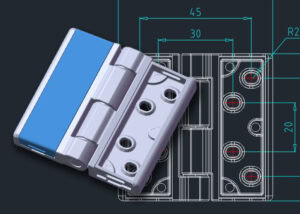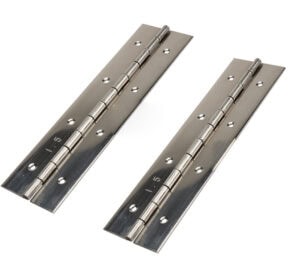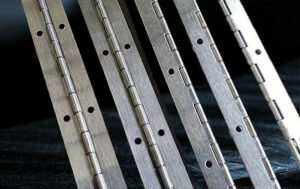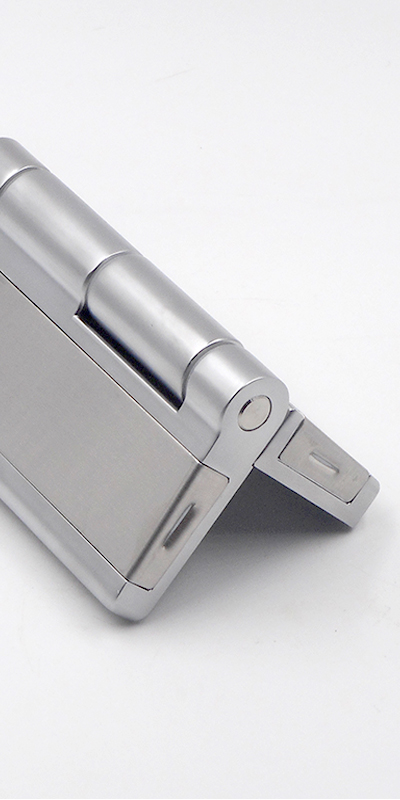When it comes to securing heavy doors, whether they be entry doors, gates, or large cabinet doors, the choice of hinges can make or break both the functionality and longevity of the door. Choosing the right hinges for heavy doors is crucial to ensure they operate smoothly, can support the weight without sagging or damaging the frame, and last for years without needing replacement.
The best hinges for heavy doors are those that are designed to distribute the door’s weight evenly, are made of durable materials, and have the right size and type to match the door’s specifications.
As you continue reading, you’ll discover the importance of selecting the right hinges for heavy doors and how it impacts not only the door’s performance but also the safety and security of the space it encloses. We’ll dive into different types of hinges suited for heavy doors, what to look for when choosing hinges, and some tips on installation and maintenance to ensure your heavy doors remain functional and secure for years to come.
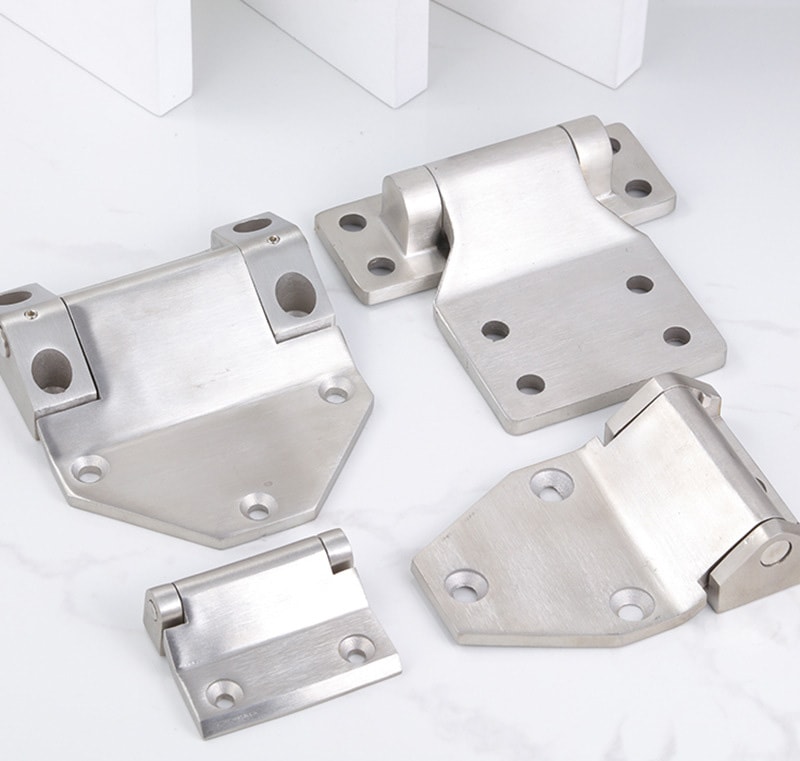
Understanding Hinge Types for Heavy Doors
When selecting hinges for heavy doors, understanding the different types available is the first step. There are several hinge types specifically designed for heavy-duty applications, each with its advantages and best use cases.
Butt hinges are one of the most common types used for heavy doors. They consist of two plates attached to the door and the frame, connected by a pin. For heavy doors, look for butt hinges made from high-strength materials like stainless steel or brass, and consider ball bearing butt hinges which reduce friction, making the door easier to open and close.
Continuous hinges, also known as piano hinges, run the entire length of the door and are excellent for providing uniform support, reducing stress on the frame. These are ideal for doors that are tall or have a high usage rate as they distribute weight and usage stresses evenly across the hinge.
Selecting the Right Material
The material of the hinge not only affects its appearance but, more importantly, its durability and functionality. For heavy doors, the hinge material needs to withstand significant weight and frequent use without degrading.
Stainless steel hinges are highly recommended for heavy doors due to their strength and corrosion resistance, making them suitable for both interior and exterior applications. Brass hinges are another great option, offering a combination of strength and aesthetic appeal, though they are more commonly used in interior applications due to their susceptibility to tarnishing.
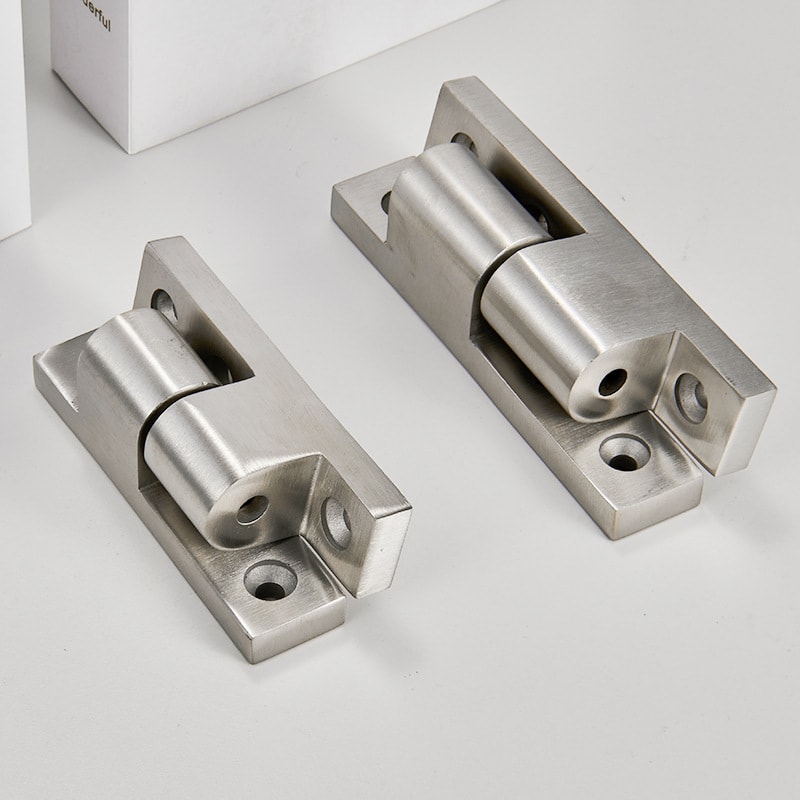
Weight Capacity and Size
It’s crucial to select hinges that can support the weight of your door. Hinges are rated by their weight capacity, so always check the specifications against the weight of your door. For heavy doors, you might need hinges with a higher weight capacity than standard ones.
The size of the hinge also plays a critical role. Larger hinges have a greater surface area, which helps distribute the door’s weight more effectively. Ensure the hinge size is proportional to the door’s size and weight for optimal performance.
Installation Considerations
Proper installation is just as important as selecting the right hinges. For heavy doors, it’s recommended to use longer screws that can penetrate deeper into the door frame or wall structure, providing additional support.
Ensuring the door is properly aligned and level during installation will prevent unnecessary stress on the hinges and door frame, extending the lifespan of both. It may be beneficial to consult with or hire a professional installer familiar with heavy doors to ensure a secure and correct installation.
Maintenance Tips
Even the best hinges require regular maintenance to ensure their longevity and functionality. For heavy doors, periodically check the hinges for any signs of wear or damage, such as rust, corrosion, or loose screws. Lubricating the hinges with a suitable product can prevent squeaking and ensure smooth operation.
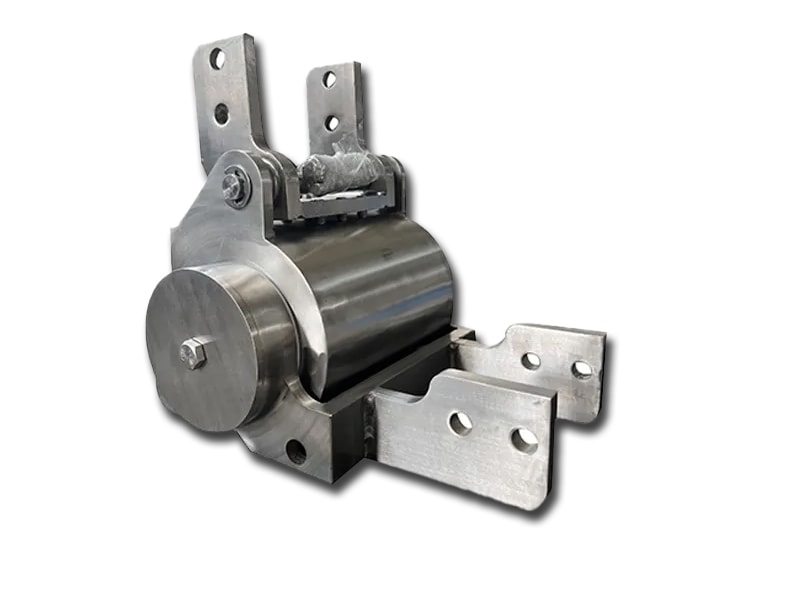
Specialty Hinges for Unique Applications
In some cases, heavy doors may require specialty hinges designed for specific applications. For example, pivot hinges are used for large, heavy doors, allowing them to swing smoothly. Similarly, concealed hinges offer a sleek, invisible solution for modern heavy doors, hiding the mechanism within the door and frame.
Cost vs. Quality
While it may be tempting to save money by choosing cheaper hinges, for heavy doors, investing in high-quality hinges is crucial for safety, functionality, and longevity. Higher-quality hinges are made from better materials, have higher weight capacities, and often come with warranties, providing peace of mind and reducing the need for replacements.
Conclusion
Selecting the right hinges for heavy doors is essential for ensuring their proper function, safety, and durability. By understanding the different types of hinges, materials, weight capacities, and sizes available, you can make an informed decision that meets the needs of your heavy door. Remember, investing in quality hinges and ensuring proper installation and maintenance can significantly extend the lifespan of your door and hinges, offering peace of mind and security for years to come.
You may be interested:

